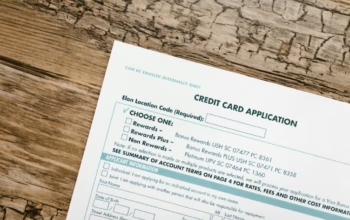Credit Counseling
But what exactly is credit counseling, and how does it work? Is it a quick fix, a scam, or a genuine path to financial freedom? In this comprehensive guide, we will delve deep into the world of credit counseling, demystifying the process, outlining its benefits, and providing a clear roadmap for anyone considering this crucial step toward a healthier financial life.
The Foundation: What Is Credit Counseling?
At its core, credit counseling is a service provided by certified professionals to help individuals manage their debt and improve their overall financial health. Unlike for-profit debt settlement companies that may encourage you to stop paying your debts to negotiate a lump-sum settlement, credit counseling is rooted in a non-profit, educational approach. The goal is not to “get rid” of your debt magically, but to empower you with the tools and strategies to pay it off responsibly and prevent future financial hardship.
Credit counselors are typically certified by recognized industry bodies and have a deep understanding of consumer credit, money management, and budgeting. During a counseling session, they will work with you to:
- Review Your Financial Situation: A counselor will conduct a thorough review of your income, expenses, and debts. This is a crucial first step to getting an honest picture of your financial reality.
- Analyze Your Credit Report: They will often pull a copy of your credit report to identify all your creditors and outstanding balances. This helps them understand the full scope of your debt and pinpoint any inaccuracies.
- Develop a Personalized Budget: One of the most significant benefits of credit counseling is learning how to create a realistic and sustainable budget. The counselor will help you identify areas where you can cut back and free up money to put toward your debt.
- Provide Financial Education: A good credit counselor will not just solve your immediate problems; they will teach you about responsible money management, the smart use of credit, and how to build a healthy financial future.
- Present Your Options: Based on their assessment, the counselor will outline all your potential paths forward. This could include a DIY debt repayment plan, a debt management plan (DMP), or even advice on other options like debt consolidation or bankruptcy.
The Cornerstone: The Debt Management Plan (DMP)
While credit counseling offers a range of services, its most common and impactful tool is the Debt Management Plan (DMP). A DMP is a structured repayment program designed to help you pay off your unsecured debts, such as credit card balances and medical bills, over a three-to-five-year period.
Here’s how a DMP works:
- Negotiation with Creditors: The credit counseling agency negotiates with your creditors on your behalf. Since these agencies are non-profits with a good reputation, creditors are often willing to make concessions to help you repay your debt. These concessions can include:
- Lowering or Waiving Interest Rates: This is the biggest benefit of a DMP. By reducing the high-interest rates on your credit cards, more of your monthly payment goes toward the principal balance, helping you pay off the debt much faster.
- Waiving Late Fees and Penalties: Creditors may agree to stop charging late fees, which can add up significantly and make it harder to get out of debt.
- Stopping Collection Calls: Once you are enrolled in a DMP, creditors are usually willing to stop collection calls, giving you much-needed peace of mind.
- Single Monthly Payment: Instead of juggling multiple bills and due dates, you make one single, manageable monthly payment to the credit counseling agency. The agency then distributes the funds to your various creditors according to the agreed-upon plan. This simplifies your financial life and helps prevent missed payments.
- A Clear Finish Line: A DMP provides a fixed repayment schedule, typically 36 to 60 months. This means you know exactly when you will be debt-free, which can be a powerful motivator.
It’s important to note that a DMP is not a “loan.” You are not borrowing new money. You are simply making one payment to a third party who then pays your creditors. This is a crucial distinction from debt consolidation loans.
The Pros and Cons: Is Credit Counseling Right for You?
Credit counseling is a powerful tool, but it’s not the right fit for everyone. Here is a balanced look at the advantages and disadvantages:
The Pros:
- Lowered Interest Rates: This is the most significant financial benefit, as it can save you thousands of dollars in interest charges.
- Simplified Payments: Managing one monthly payment is much easier than juggling several.
- Avoids Bankruptcy: For many, a DMP offers a viable and less damaging alternative to declaring bankruptcy.
- Improved Financial Habits: The educational component is invaluable. You’ll learn the skills necessary to stay out of debt in the future.
- No Credit Damage (or minimal): Unlike debt settlement, which can severely damage your credit, a DMP is seen as a sign that you are taking a proactive step to repay your debts. While some creditors may note your participation in a DMP on your credit report, the long-term benefit of paying off your debt far outweighs any temporary dip.
- Professional Guidance: You have a certified professional in your corner to guide you through the process and answer your questions.
The Cons:
- Not a Magic Wand: A DMP requires discipline and commitment. You still have to make your payments on time and stick to your budget.
- It May Require Closing Credit Cards: To prevent you from accumulating more debt, the credit counseling agency may require you to close your credit card accounts included in the plan. This can temporarily impact your credit score.
- It Doesn’t Cover All Debts: DMPs typically only cover unsecured debts like credit cards and personal loans. They do not cover secured debts like mortgages or car loans, or other debts like student loans or taxes.
- Potential for Fees: While non-profit, credit counseling agencies may charge a one-time setup fee and a small monthly fee for their services. These fees are usually minimal and can often be waived if you can demonstrate a financial hardship.
Finding the Right Credit Counseling Agency: A Guide to Vetting
The world of financial services is filled with both legitimate and unethical players. To ensure you find a trustworthy agency, follow these crucial steps:
- Check for Non-Profit Status: A legitimate credit counseling agency will be a non-profit organization. Look for accreditation from a recognized body, such as the National Foundation for Credit Counseling (NFCC) or the Financial Counseling Association of America (FCAA). These organizations vet their members for quality and adherence to ethical standards.
- Verify Counselor Certifications: Ask about the counselor’s credentials. Are they certified by a reputable organization? A certified counselor has undergone rigorous training and passed exams to demonstrate their expertise.
- Look for Transparency: A reputable agency will be transparent about its fees and services. They will not pressure you into a specific plan or make unrealistic promises, like “we can erase your debt.” Ask for a written agreement that outlines all the terms and conditions.
- Read Reviews and Check the BBB: Do your homework. Look up the agency on the Better Business Bureau (BBB) website to see their rating and any customer complaints. Also, read reviews on independent consumer review sites.
- Be Wary of Red Flags: Avoid any company that:
- Charges high upfront fees.
- Guarantees it can get rid of your debt without any effort on your part.
- Tells you to stop communicating with your creditors.
- Refuses to provide a written contract.
The First Step: Your Initial Consultation
The first consultation with a credit counselor is typically free and confidential. It’s your opportunity to ask questions and get a feel for the process without any obligation. Be prepared to discuss your financial situation openly and honestly. The more information you provide, the better the counselor can help you.
During this session, ask questions like:
- What services do you offer?
- What are your fees? Are they negotiable?
- How long have you been in business?
- What are the qualifications of your counselors?
- How will a DMP affect my credit score?
- What kind of a relationship do you have with my creditors?
Conclusion: A Path to Empowerment
Credit counseling is not a quick fix for debt. It’s a structured and educational process that provides a clear path to financial recovery. For those feeling trapped by overwhelming debt, a certified credit counselor can be a trusted partner, offering expert advice and a practical plan to get back on track.
By choosing a reputable non-profit agency and committing to the process, you can not only get out of debt but also gain the financial literacy and confidence to prevent future financial struggles. The journey to financial freedom begins with a single, courageous step—and for many, that step is a phone call or a meeting with a credit counselor. It’s about empowering yourself with knowledge, taking control of your finances, and building a more secure and prosperous future, one responsible decision at a time.



